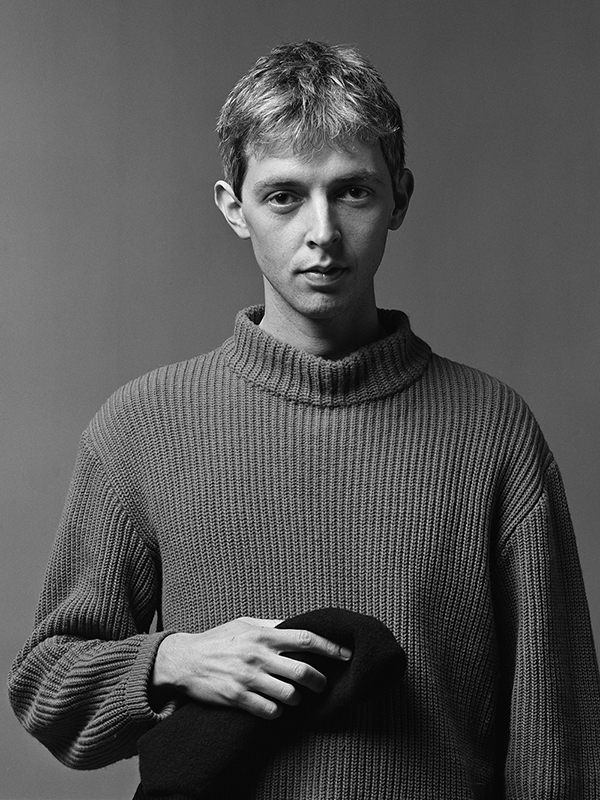
This exhibition presents the rise of a generation of photographers who demanded that ‘creative’ or fine art photography be accepted as an art in its own right by the institutional and artistic system during the 1970s and early 1980s. It ranges from the opening of Spectrum, the first gallery in Spain to specialise in photography, inaugurated in Barcelona in 1973, to the Primavera Fotogràfica (Springtime of Photography) held in Barcelona in 1982
“Creative” photography in Catalonia (1973–1982)” is an exhibition presenting the rise of a generation of photographers that demanded recognition of photography as an art in its own right within the institutional and artistic system during these years, accounting for museums, galleries, critics and the editorial circuit. Several documentary archives from the period have been recovered for this purpose, as well as a significant proportion of this generation’s artistic production during this particular time frame.
The magazine Nueva Lente, published in Madrid from 1971 onwards and in which Catalan authors had a constant presence, backed this new photographic discourse from the very beginning. The specialised galleries—including Spectrum, a pioneering space opened in Barcelona in 1973, and other exhibition spaces that also opened in the same period—made a decisive contribution to spreading the work of this group of photographers, while also allowing for an awareness to be gained of the main international trends of the time. Furthermore, the appearance of collectives and strategies through which to articulate an institutional framework had an enormous impact on the development of a renewed photographic culture, which led to the organisation of the Jornadas Catalanes de Fotografia [Catalan Photography Conferences], held in the Fundació Joan Miró in 1980, the creation of the Col·lectiu Català de Fotografia [Catalan Photography Collective] and, lastly, the holding of the Primavera Fotográfica a Barcelona [Photographic Spring in Barcelona] in 1982.
This exhibition covers all previous historical and sectorial episodes whose main basis was a different consideration of signature photography, then known as “creative” photography. The collection is rounded off with a catalogue exhaustingly documenting and providing a detailed chronology of the period.
“Creative” photography in Catalonia (1973–1982) includes works from Pere Formiguera, Manel Esclusa, Joan Fontcuberta, Marta Sentís, Tony Keeler, Manolo Laguillo, Lluis Casals, Jordi García, Ferran Freixa, Humberto Rivas, Josep Rigol, Manel Armengol, Maria Espeus, Toni Catany, Manel Úbeda, Enric de Santos, Eduard Olivella, Jordi Esteva, Miquel Sala, Jordi Sarrà, Bigas Luna, Juan José Gómez Molina, América Sánchez, Lluis Bover, Eduard Olivella, Jordi Guillumet, Manuel Serra and Marta Povo. It includes work from collectives such as the Grup Taller d’Art Fotogràfic, FotoFAD, Grup Alabern, Grup 3 Peus and the Col·lectiu Català de Fotografia. Documentary records from the Spectrum, Sala Aixelà, TAU, Nikon, Fotomanía, Procés, Material Sensible, FORVM, Sala Vinçon, Rosa Bisbe, Ciento, Lleonart, Eude, Photogalería, Saloncito Dos i Una and 491 galleries. Publications such as Nueva Lente, Flash-Foto, Spectrum News, Imatge, Papel Especial, Contrejour, Afterimage and Artilugi. Material detailing the activity of museums such as the Institut d’Estudis Fotogràfics de Catalunya [Catalan Photography Study Institute; IEFC], la Caixa d’Estalvis de Manresa, the Capellades Paper Mill Museum, la Caixa at Lleida, the Palau de la Virreina and the Fundació Joan Miró de Barcelona, as well as events such as the Fotomostra Iltirda, the International Arles Photo Festival, the Catalan Photography Conferences in 1980 and the Photographic Spring in Barcelona 1982. Curator: Cristina Zelich, with the collaboration of Pep Rigol. (La virreina press-release)
LA VIRREINA CENTRE DE LA IMATGE. Palau de la Virreina. La Rambla, 99. 08002 Barcelona
http://ajuntament.barcelona.cat/lavirreina
Image: Maria Espeus, ‘Adolfo Fernández, arqueólogo’, de la serie <<Hola Barcelona>>, 1982
